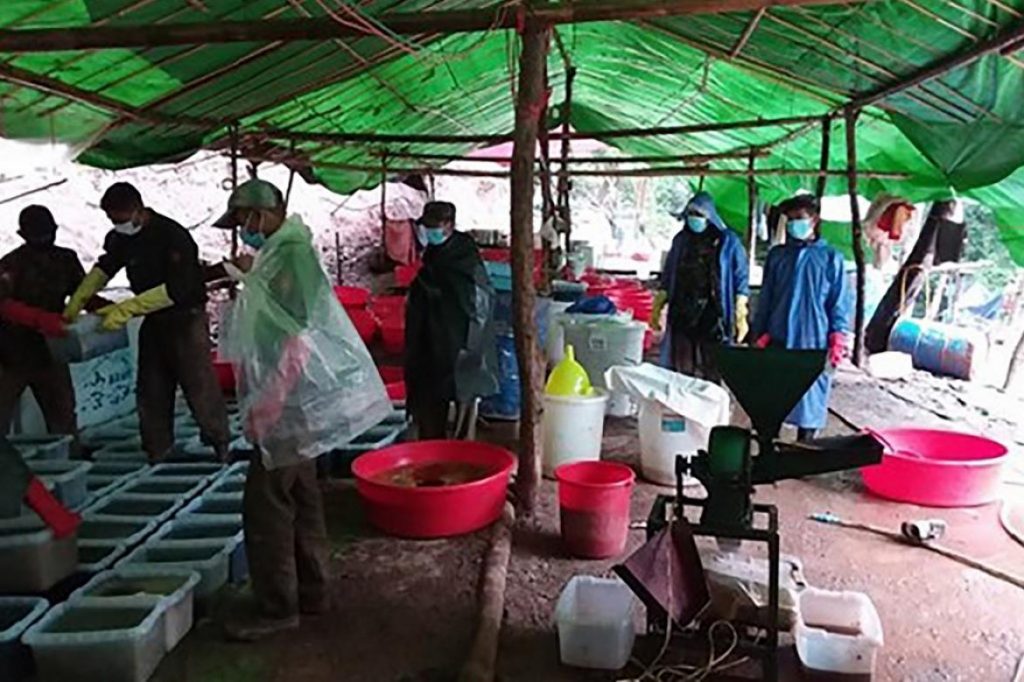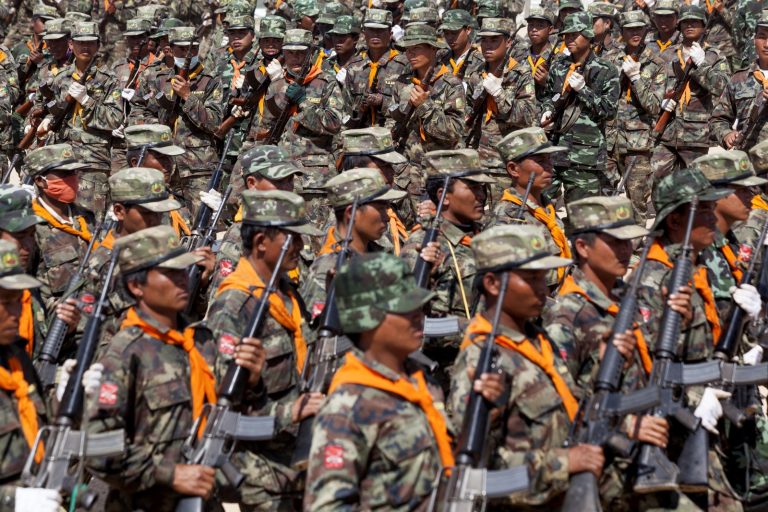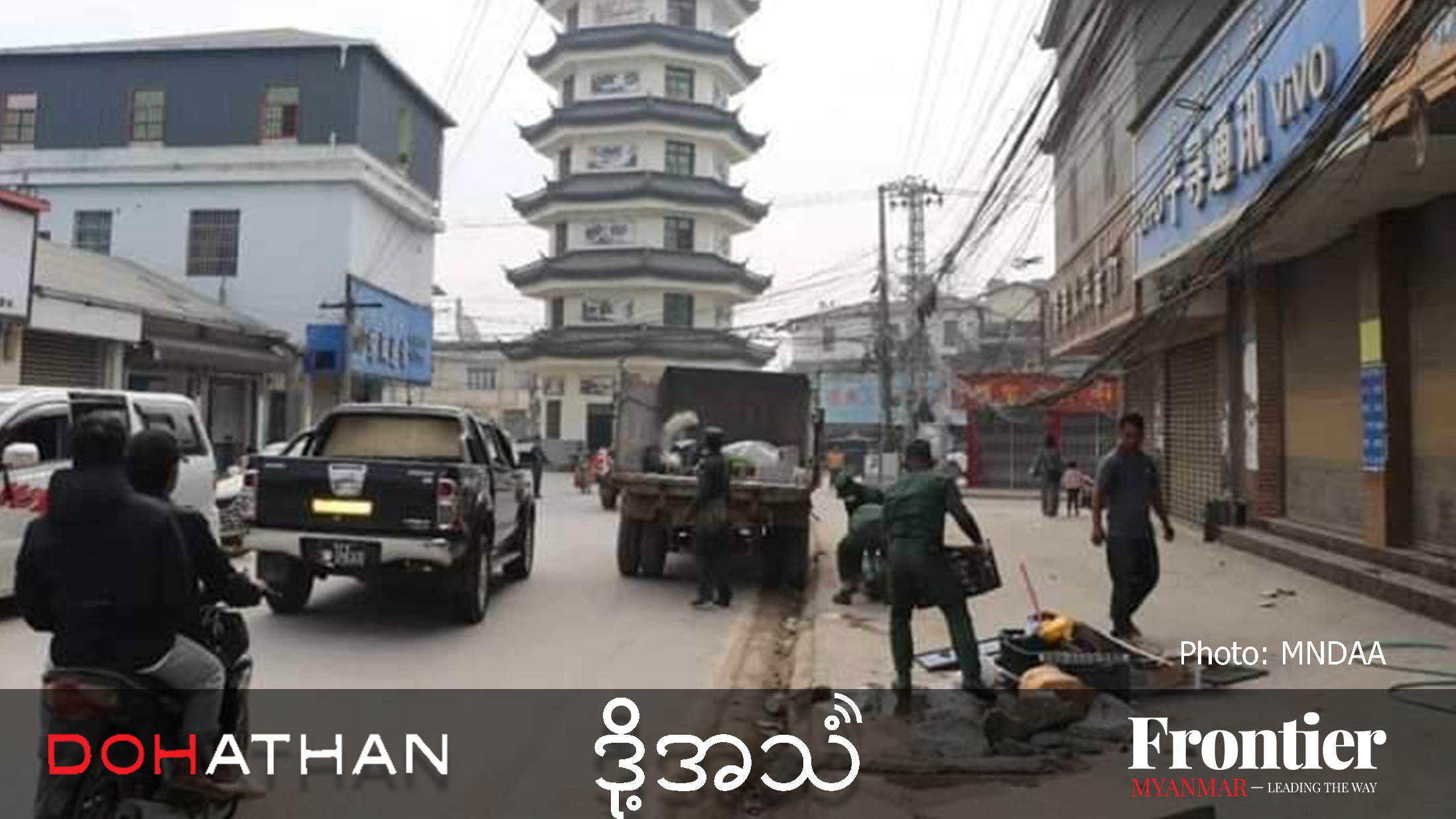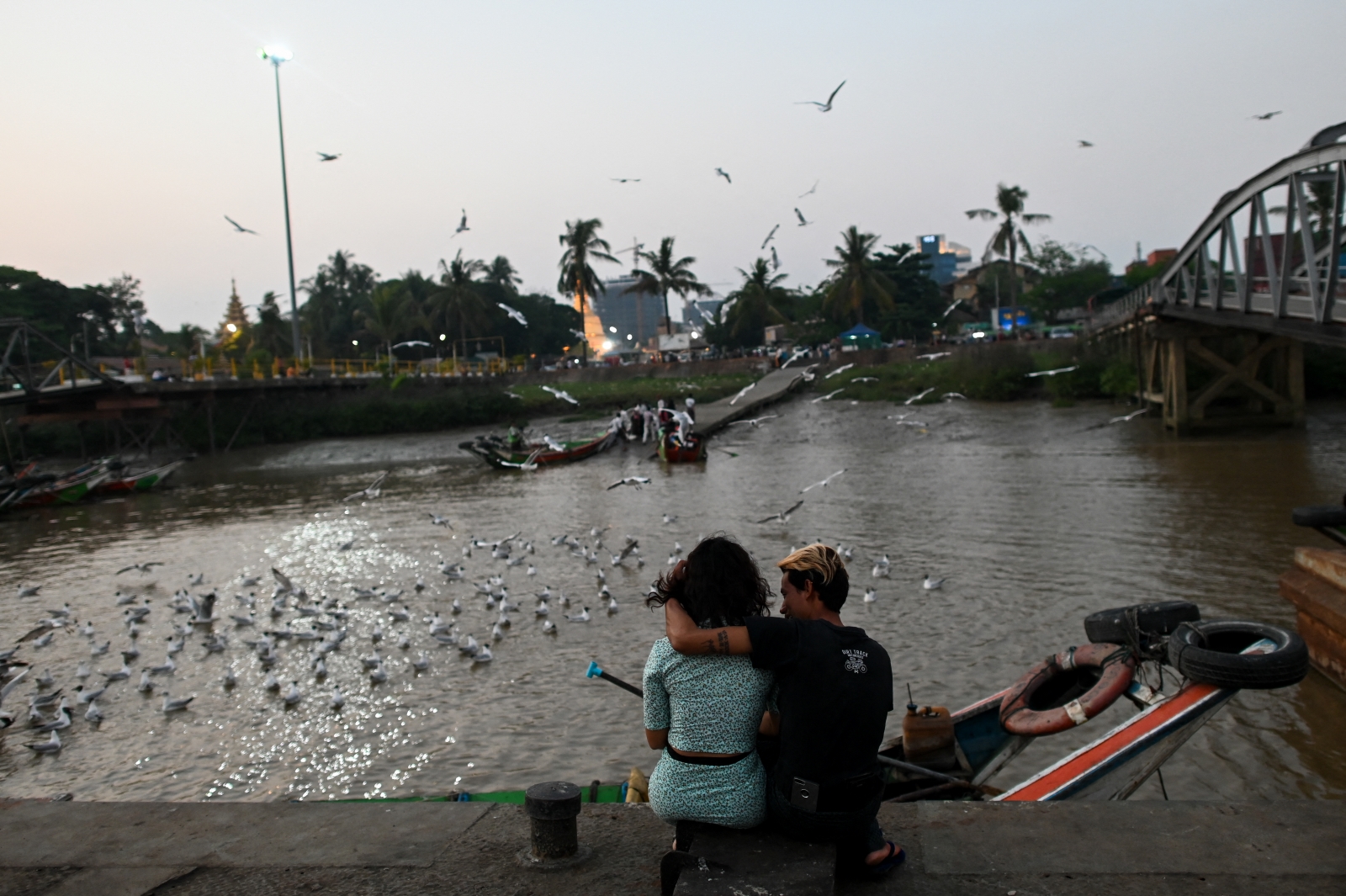By AFP
YANGON — Raids on jungle drug labs have been met with heavy artillery fire, Myanmar narcotics police said Thursday, in an area riddled with armed groups accused of pumping out much of the world’s methamphetamine.
Myanmar is under increasingly intense pressure from its neighbours to close down the meth labs in lawless parts of Shan State, the heart of the notorious “Golden Triangle”.
A major crackdown kicked off last month in Kutkai Township, northern Shan State, the Tatmadaw has said, where an entwined network of drug lords, ethnic rebel groups and security forces are accused of running a shadow drug economy worth billions of dollars.
Huge stockpiles of chemicals as well as millions of dollars of ice, the highly addictive crystalised form of meth, were seized in one raid on homespun labs buried deep in the jungle.
Support more independent journalism like this. Sign up to be a Frontier member.
“The crackdown is ongoing,” a senior police officer from the anti-drugs squad told AFP, requesting anonymity.
The Tatmadaw and drug police initially conducted raids in the area on July 21 but were repelled by “heavy artillery” at the site, the officer said.
They returned several days later, busting a massive production site of nearly 100 huts.
Police seized 750 kilograms (1,650 pounds) of ice worth an estimated US$10.5 million along with 9,000 yaba pills, caffeine-laced meth tablets, the army said.
They also found thousands of acid barrels and bottles, stoves, fridges, power generators and tea bags, which are often used to disguise drugs for smuggling.
Rare photos of the cook houses showed rudimentary huts made from tree trunks and tarps.
The country’s largest ever drug bust was in the same area last year where police seized 30 million yaba pills, 1,750 kilograms of crystal meth and 500 kilograms of heroin with a domestic value of around $54 million.
The “Golden Triangle”, a lawless wedge of land intersecting China, Myanmar, Thailand and Laos, has long served as a base for opium and heroin production.
But methamphetamine production from Myanmar has risen to “alarming levels”, according to the United Nations Office on Drugs and Crime (UNODC).
The country is now believed to be the world’s biggest producer of meth.
Drugs fan out across Southeast Asia thanks to porous borders, weak law enforcement and sophisticated money laundering networks often run out of casinos.
Made-in-Myanmar meth is being trafficked as far afield as Australia, where its price surges.







